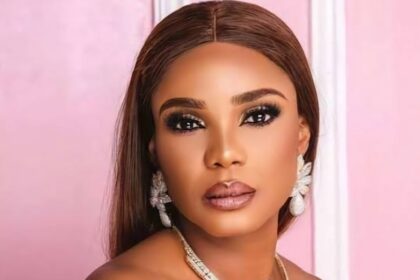Petrol subsidy removal was suspended because it was not in the country’s best interest, President Muhammadu Buhari said yesterday.
He said while removing subsidy looks good on paper, the human consequences cannot be ignored.
Although his administration was on the verge of removing petrol subsidy last year, President Buhari said it became inadvisable after input from industry experts and other economic factors.
The President spoke in an interview with Bloomberg. He fielded questions on a wide range of issues, including the economy, infrastructure development, activities of Indigenous People of Biafra (IPOB) and state of the nation.
The President pointed out that the West sustains its markets through fuel subsidies.
According to him, issues around petrol subsidy would be resolved through ongoing efforts at boosting local refining, especially through private sector involvement.
The President said: “Most western countries are today implementing fuel subsidies. Why would we remove ours now? What is sauce for the goose is sauce for the gander.
“What our western allies are learning the hard way is what looks good on paper and the human consequences are two different things.
“My government set in motion plans to remove the subsidy late last year.
“After further consultation with stakeholders, and as events unfolded this year, such a move became increasingly untenable.
“Boosting internal production for refined products shall also help.
“Capacity is due to step up markedly later this year and next, as private players and modular refineries (Dangote Refinery, BUA Group Refinery, Waltersmith Refinery) come on board.
“The exchange rate is still susceptible to external shocks that can suddenly and severely affect Nigerian citizens.
“As we step up domestic production – both in fuel (enabled by PIA) and food (agricultural policies) – the inflationary threat shall diminish, and we can move toward unification.”
On whether the Central Bank of Nigeria (CBN) Governor Godwin Emefiele’s presidential bid violated any law, President Buhari said the CBN’s board had the responsibility to determine that.
He said: “The CBN governor is appointed by the President. But this appointment is subject to confirmation by the Nigerian Senate.
“Ultimately, it will be for the CBN’s board of directors to determine whether a CBN governor’s actions have fallen foul of the laws in place to ensure he can most effectively carry out his duties.”
The President said he would endorse a candidate for president: “Yes. I will endorse the APC candidate for president.”
On stoning to death people accused of blasphemy, he said no person has the right to take the law into their own hands.
“Christianity and Islam, our two great faiths and their Great Books have far more in common than they have apart.
“Nigeria has a long tradition of tolerance that we must draw on, and we must strive to find common ground.
“What comes out of this tragedy is to cherish what we share, while at the same time respect our differences,” he said.
On why taxes cannot be increased, President Buhari said 80 per cent of those to be taxed are in the informal sector.
“Though we have the largest economy in Africa, it is true that translating that wealth into revenue generation is challenging.
“We raised VAT in 2020, and the IMF wanted us to raise it further, but this is a complex issue that cannot be addressed by tax hikes alone.
“Around 80 per cent of Nigerians work in the so-called informal economy – a situation exacerbated by the pandemic.
“It is difficult to tax the informally employed, and no country has yet found an adequate solution,” he said.
Asked what the government was doing to ensure food security in the face of spiralling inflation, President Buhari accused the European Union (EU) of encouraging the export of their subsidised food into Africa and therefore undermining the continent’s food sustainability efforts.
“The EU’s policies, in particular, are all rhetoric of open trade – yet their Common Agricultural Policy subsidy programmes and export of those subsidized goods create dependence, undermine Africa’s self-sufficiency, and cause food poverty and starvation,” he said.
The President said he had been able to secure the repatriation of looted funds because the nation’s international partners could trust his leadership.
On Nigeria’s rising debt profile, President Buhari, said a narrow focus on debt misses the point.
“What it fills is Nigeria’s longstanding infrastructure deficit by constructing a foundation for sustainable growth – spreading opportunity to ensure no part of the country is left behind, which has led to insecurity in the past,” he said.
According to him, Nigeria’s infrastructure developments have been the most ambitious since independence.
“Over 800 federal roads are being constructed or undergoing rehabilitation and 650km of rail line have been laid, helping alleviate food inflation pressures, given most food is produced in the north.
“Had the infrastructure gap not been filled it will only grow, become more costly to repair what little we have while lacking more on infrastructure on which to build growth, negatively impacting progress towards UN Sustainable Development Goals,” he said.
President Buhari said with the reforms in the oil, the Nigeria National Petroleum Corporation (NNPC) will on July 1 become a Limited Liability Company and be subject to more robust auditing and commercial disclosure obligations.
He believes it will help stimulate investment and boost transparency, where corruption has deterred the former and stymied the latter.
President Buhari pleaded with international partners, especially the United States and Britain, to remove the Indigenous People of Biafra (IPOB) from the international financial network.
“Their leadership enjoys safe haven in the West, broadcasting hate speech into Nigeria from London, spending millions lobbying members of the US Congress, and freely using international financial networks to arm agitators on the ground. This must stop,” he said.



